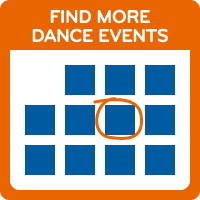Junior Committee
Tuesday, October 4, 2022
I'm Not a Productive Worker
If there’s one thing we love in this country, it’s productivity. We’re always seeking ways to be more productive. And I’m not mad about it! There’s nothing like having a productive day that leaves you with the feeling of success and satisfaction. However, I’m becoming aware that productivity often means more than just doing good work. Productivity as we know it has a look to it. I remember working front desk at a pilates studio where the manager stated he was going to rearrange the front lobby so that us at the front desk had to stand. That way we’d “look like we’re working”. The appearance of being productive has become a key signifier to someone being recognized as a hard worker. Regardless of the quality of work the employee is doing, if the labor isn’t visible to the public in an accepted way, it doesn’t mean a thing.
Performing productivity is a part of many, if not all, workplaces. No one wants to look like the slacker in the group. In fact, looking like a slacker can get you fired. I’m well versed in how to make myself look constantly at work to the public eye. However, now that my arts administration job is fully remote with no outside eyes on me, I still feel pressure to perform my productivity even as I sit alone in my room. I’ll complete my tasks for the day, be on track to complete other tasks for the rest of the week, and yet feel guilty stepping away from my computer to read that book on my shelf or turn on Bob’s Burgers for a laugh in the middle of the workday. All of the voices in my head start to tell me, you aren’t doing enough! This is laziness! You aren’t being productive!
This idea of what productivity looks like informs how we show up to our jobs and how we - and others - perceive our work ethic. The issue is that this idea is very limited, highly capitalist, and disregards the needs of each person. Our society aspires for humans to be capable of the same productivity machines achieve, meaning consistent, high outputs with few to no breaks. Humans are not machines. Every one of us has a variety of different needs and environments that help us to be our most productive selves. And often, that doesn’t translate into the image of the Productive Worker that we’re taught. The Productive Worker is always doing something. Always working on their tasks. And even if they complete all of their tasks, they’re searching for more, always creating work for themselves, never resting until the workday is complete. That’s a hard worker, right? That’s real work ethic?
If that’s true, then I’m not a Productive Worker. In fact, when I try to follow that example, it often leads to burnout, blockage, and an inability to approach my work in a meaningful way. When I neglect myself and my specific needs, the work that comes out is usually subpar and leaves a dent in my mental and physical state that then continues to affect my work and ethic. True productivity begins to flow when I tune into my own rhythm. For me that looks like scheduling a midday nap to rejuvenate my brain; regular time away from the screen to read or listen to music so that I’m stimulated in a different way; taking walks and switching up my work environment every now and then. To anyone used to viewing productivity as someone constantly at work, these actions might seem lazy and like mere distractions from the tasks at hand. One might even dare say that my work ethic is lacking. What I’m finding, though, is that I have better durability for my workday which produces excellent results.
As I navigate and explore operating in authentic productivity for myself, I can’t help but wonder how societal work culture would shift if we valued genuine productivity over the performance of productivity. Working remotely gives me a level of autonomy to incorporate and cultivate the breaks and environment I need to sustain myself in my work. This autonomy can be difficult to maintain in an in-person environment, though, where your productive self and needs may be misinterpreted by your workplace. And it’s even more challenging for dancers in the studio who are pressed up against time and space constraints that add to this need to grind at the expense of their rest.
We have to release this singular image of how a productive worker should look. We also have to question if being in a constant state of producing is aligning us with the sustainability we seek. As we continue to push for more equitable practices in our workspaces, my hope is that we also transform our relationship to work and productivity. I want a world where employers and employees have conversations around what that employee needs in order to be at their most productive state.
I’m thankful for the work of groups such as The Nap Ministry who are speaking up against grind culture and the stigmas we’ve developed around rest, encouraging us all to advocate for our needs and not neglect our right to exist apart from our work. Our dance ecosystem carries so much knowledge about the body and yet still wrestles with societal conditioning to always be producing. One thing I’ve learned from this ongoing pandemic is that I deserve to move at a slower pace. I’m challenging myself and others to release the pressure to perform productivity and instead, lean into authentic practices that enable us to have a holistic approach to work and rest. We reshape our work cultures when we first reshape our personal relationship to work.



